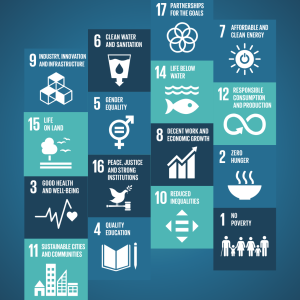Indikatoren in dieser Dimension analysieren, inwieweit Migrantinnen und Migranten hinsichtlich des Zugangs zu grundlegenden sozialen Diensten wie Gesundheit, Bildung und soziale Sicherheit den gleichen Status wie Bürgerinnen und Bürger haben. Es beschreibt die Rechte von Migrantinnen und Migranten auf Familienzusammenführung, Arbeit, Aufenthalt und Staatsbürgerschaft. Die Ratifizierung der wichtigsten internationalen Konventionen fällt ebenfalls in diesen Bereich.main.
Indikatoren in dieser Dimension bewerten die institutionellen, rechtlichen und regulatorischen Rahmenbedingungen der Länder im Zusammenhang mit Migrationspolitik. Dimension 2 beinhaltet auch das Vorhandensein von nationalen Migrationsstrategien, die mit Entwicklungspolitik und -ansätzen im Einklang stehen, sowie die institutionelle Transparenz und Kohärenz in Bezug auf Migrationsmanagement. In diesem Bereich wird auch untersucht, inwieweit Regierungen Migrationsdaten erheben und verwenden.
Diese Dimension konzentriert sich auf die Bemühungen von Ländern, in migrationsbezogenen Fragen mit anderen Staaten und einschlägigen nichstaatlichen Akteuren, einschließlich Organisationen der Zivilgesellschaft und des Privatsektors, zusammenzuarbeiten. Kooperation kann zu Verbesserungen der Regierungsführung führen, indem Standards angeglichen und angehoben, der Dialog intensiviert und Strukturen der Bewältigung von Herausforderungen geschaffen werden.
Diese Dimension umfasst Indikatoren für die Politik der Länder zur Steuerung des sozioökonomischen Wohlergehens von Migrantinnen und Migranten, z.B. die Anerkennung der Bildungs- und Berufsqualifikationen von Migrantinnen und Migranten, Bestimmungen zur Regelung der Studentenmigration und das Bestehen bilateraler Arbeitsabkommen zwischen Ländern. Die Indikatoren konzentrieren sich gleichermaßen auf Maßnahmen und Strategien im Zusammenhang mit dem Engagement der Diasporamitglieder und den grenzüberschreitenden Geldtransfers von Migrantinnen und Migranten
Diese Dimension befasst sich mit der Art und dem Grad der Bereitschaft von Ländern, wenn sie mit Mobilitätsdimensionen von Krisen konfrontiert sind, die entweder mit Katastrophen, der Umwelt und/oder Konflikten zusammenhängen. Die Fragen werden verwendet, um die Prozesse für Staatsangehörige und Ausländer sowohl während als auch Katastrophen zu ermitteln, einschließlich der Frage, ob humanitäre Hilfe für Migrantinnen und Migranten genauso verfügbar ist wir für Bürgerinnen und Bürger.
Diese Dimension analysiert den Ansatz der Länder zum Migrationsmanagement bezüglich Grenzkontroll- und Grenzschutzmaßnahmen, Zulassungsvoraussetzungen für Migranten, Vorbereitung und Flexibilität bei erheblichen und unerwarteten Wanderungsbewegungen sowie die Bekämpfung des Menschenhandels und des Menschenschmuggels von Migrantinnen und Migranten. Es werden auch die Bemühungen und Anreize zur Unterstützung der Integration der zurückkehrenden Staatsbürgerinnen und -burger bewertet.
This country Profile describes examples of well-developed areas of the Federal Republic of Nigeria (hereinafter referred to as Nigeria) governance structures and areas with potential for further development, as evaluated through the six domains of the Migration Governance Indicators (MGI). These address migrants’ rights, a “whole-of-government” approach, partnerships, socioeconomic well-being of migrants, the mobility dimensions of crises, and safe and orderly migration.
Click the icons on the wheel to explore the key findings.
The Migration Governance Indicators (MGI) initiative is a policy-benchmarking programme led by the International Organization for Migration (IOM) and implemented with research and analysis from the Economist Impact. Funding is provided by IOM Member States.
Migration Governance: examples of well-developed areas
- Migrants with a regular status have the same access as nationals to Government-funded health services.
- Nigeria has agreements for the portability of social security entitlements with member States of the Economic Community of West African States (ECOWAS).
- The National Migration Policy establishes objectives and strategies to combat racism, discrimination, xenophobia and intolerant behaviour towards migrants.
Areas with potential for further development
- Permanent residence permits are available exclusively to individuals who have been married to Nigerian citizens and obtained the Spouse of a Nigerian Citizen Visa.
- Citizens of Nigeria living abroad are not able to vote in national elections.
- Only migrants holding a business permit, such as an investor permit, can take up self-employment in Nigeria.
Migration Governance: examples of well-developed areas
- Nigeria’s National Migration Policy (NMP) aims to “address the multifaceted issues of migration and create a win-win situation for migrants and countries of origin, transit and destination”.
- The National Commission for Refugees, Migrants and Internally Displaced Persons coordinates the implementation of the NMP in collaboration with key stakeholders.
- The Nigerians in Diaspora Commission coordinates diaspora policy in Nigeria
Areas with potential for further development
- The Economic Recovery and Growth Plan of Nigeria does not include migration-related provisions.
- Nigeria only publishes migration data on an ad hoc basis.
Migration Governance: examples of well-developed areas
- In 2010, the Governments of Nigeria and Switzerland signed an MOU on cooperation in capacity-building in relation to immigration administration and migration and development.
- Nigeria engages civil society organizations in agenda setting and the implementation of migration-related policies and programmes.
- The Nigerians in Diaspora Commission engages its diaspora and expatriate communities in agenda-setting and the implementation of activities pertaining to national development.
Areas with potential for further development:
- The Government only engages with private sector partners in migration-related agenda setting on an ad hoc basis.
Migration Governance: examples of well-developed areas
- The Nigeria Visa Policy (2020) introduced several visa categories for migrants employed in the country, some of which seek to attract migrants with specific skills.
- The National Policy on Labour Migration and the National Migration Policy include measures to promote gender equality for migrants in the labour force.
- Nigeria has developed multiple measures to promote the ethical recruitment of migrant workers.
- The Nigerian Government has put measures in place to facilitate the flow of remittances.
Areas with potential for further development
- The country has limited capacity for monitoring the labour market demand for immigrants or the effects of emigrants on the domestic labour market.
- International students are charged higher university fees than nationals.
- Nigeria does not have measures to promote the financial inclusion of migrants.
Migration Governance: examples of well-developed areas
- The National Disaster Management Framework (NDMF) contains provisions for addressing the displacement impacts of disasters
- Nigeria’s National Migration Policy (NMP) covers the linkages between migration, the environment and climate change.
- The National Migration Policy addresses the “return, readmission and reintegration” of nationals stranded abroad, including in crisis contexts.
Areas with potential for further development
- The NDMF does not contain provisions that specifically address assistance to migrants before, during, or post-crisis.
- The Government of Nigeria has measures in place to make exceptions to immigration procedures only for refugees.
- Nigeria’s national development strategies do not include measures regarding displacement or the reintegration of returning migrants.
Migration Governance: examples of well-developed areas
- Nigeria has systems to monitor visa overstays through an e-passport system and the Migration Information and Data Analysis System among others.
- The Trafficking in Persons (Prohibition) Enforcement and Administration Act sets the foundation for health and protection services for victims and survivors of trafficking in persons and establishes the National Agency for the Prohibition of Trafficking in Persons.
- Nigeria has formal arrangements with other countries to prevent migrant smuggling.
Areas with potential for further development
- Migrant detention is only used as a measure of last resort but these apply only to survivors of trafficking or smuggling.
- Nigeria has procedures in place to identify and provide referral and protection services only to missing and vulnerable migrants who are victims of, or at risk of, trafficking.
2021 September



